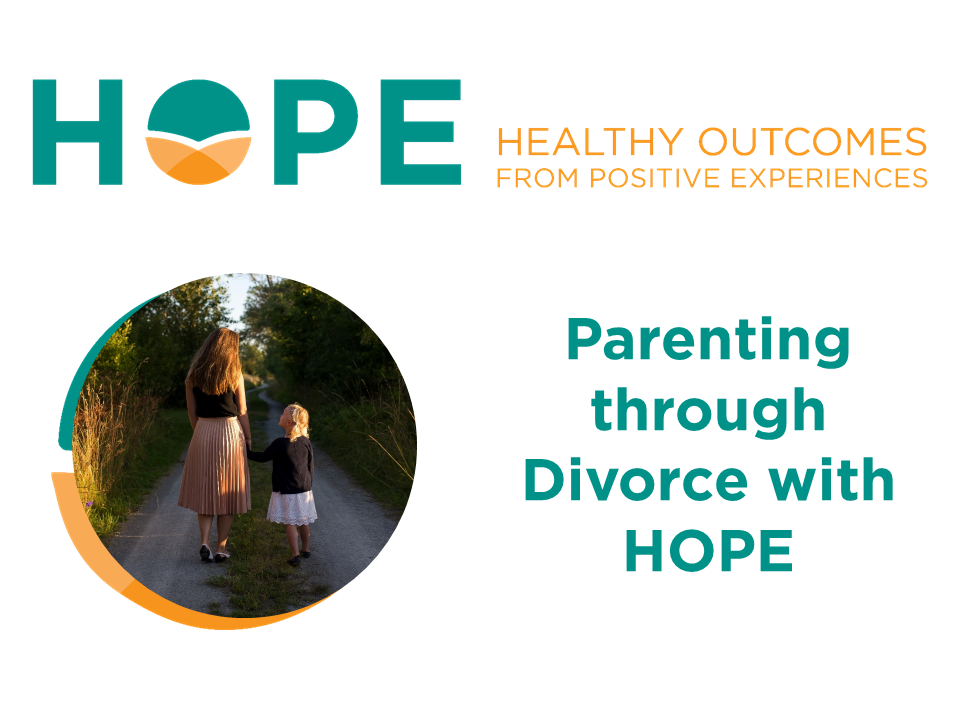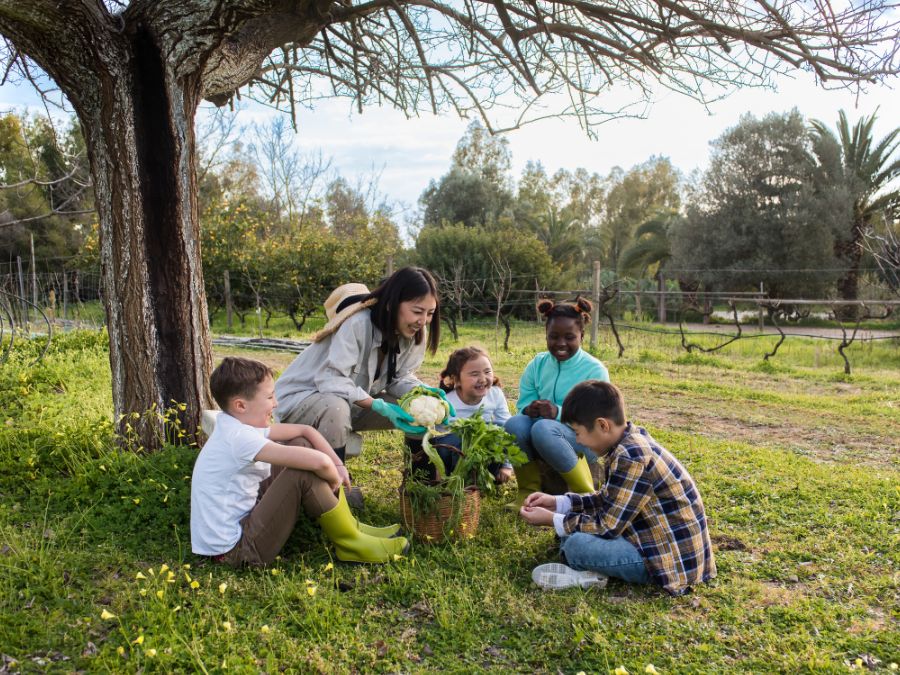
Hello out there, HOPE family. I joined HOPE at the start of this year to help the team bring HOPE to the West Coast. I’m a Bay Area girl living in Portland. Well, to be more precise, I’m a New Jersey girl who made the Bay Area her home for over a decade before moving to Portland. I’m a social worker with my MSW from Cal, and I’ve always worked at the intersection of parenting and poverty, typically at a more macro-level. Oh, and I’m a queer Jew who’s relatively recently divorced with two kids.
As it became apparent that divorce was in my near future, I did what any good Jewish girl would do- I went to therapy. During my intake, my therapist had me fill out an ACEs screening. Now, to be fair, I do have some childhood trauma that was probably relevant to my treatment, but all I could think about was the fact that my actions were about to increase my own children’s ACE score. Divorce is on the screening tool. It’s number two on the list. “Did you lose a parent through divorce, abandonment, death, or other reason?” It’s given the same weight as parental death or abandonment.
I left that first therapy session, and all I could think about was question number 2. I was filled with guilt knowing that divorce was inevitable. I had dreams where my children developed heart disease and the doctors blamed it on their ACE score from the divorce. I’m not exaggerating. When I tell you that I was familiar with the ACEs research having worked in California while the topic was really taking off, what I should say is that I may have been completely bought in prior to that moment. I’d never stopped to think about the implications of the score on the parents’ psyche or how easy it was to draw a straight line from childhood trauma to CERTAIN DEATH. Have you seen the movie, Trolls (for all of the parents out there, I’m talking about the original, not World Tour)? There’s this scene where the two main troll characters are trying to determine which of two tunnels will take them where they need to go. A happy-looking cloud character appears and tells them that one tunnel will lead them to their destination, and the other will lead them to CERTAIN DEATH. The scene played on loop in my head.
And then I found HOPE (and hope). It’s so obvious. Of course positive childhood experiences (PCEs) are protective factors against adverse childhood experiences. While I may have increased their ACE score by 1 point, they still had two parents who loved them beyond belief. They actually increased the number of caring, loving, supportive adults in their lives as new partners came into the picture. They now have models of authentic, healthy love in their lives, and they have learned that they are capable of doing hard things.
I’m not going to end this by telling everyone that divorce is great for children. It’s obviously not ideal. But when you look at it through a lens of HOPE as opposed to deficit-based thinking, you can begin to see the beauty and the lessons that can come from less-than-ideal situations. My children have three parent figures now who love them deeply. They live in a multigenerational household with their grandparents half of the week building relationships that otherwise would not have been possible. They have experienced deep sadness and grief, but also the comfort of being held close while they cried. They have leaned into the power of friendship, even at such young ages, as their closest friends helped them process what they were feeling. They have learned to be vulnerable and ask for help when they need it. They have learned that life isn’t always easy, but it also doesn’t stay hard forever. They have learned resiliency through all of this, and I, as their parent, have learned so much from them.
We have a choice every day, whether we’re making big decisions or just waking up and going to work. We can stare at the tunnel that leads to CERTAIN DEATH, or we can look around and notice the flowers sprouting up, the sun shining on our skin, and the breeze on our face. Both options exist most days, but I can tell you that life is a much more beautiful place when you stop perseverating on the tunnel.
Photo by Jon Flobrant on Unsplash


